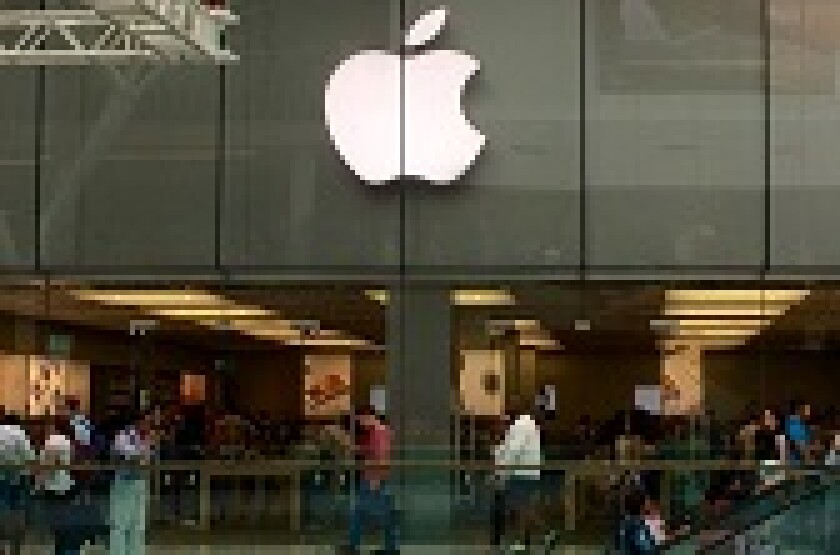Cook dismissed criticism that Apple is not paying its fair share of US taxes while taking advantage of a “sweetheart” State aid tax deal in Ireland.
“Our marginal rate, our effective rate in the US is over 30%. We are the largest taxpayer in the United States. And so we’re not a tax dodger. We pay our share and then some,” Cook said in a wide-ranging interview published on August 13. “We don’t have these big loopholes that other people talk about. The only kind of major tax credit that we get is the R&D tax credit, which is available to all companies in the United States.”
Ireland state aid
Cook’s interview comes as EU antitrust regulators prepare to rule on whether Apple must repay billions in back taxes. Investigators are considering whether Dublin offered Apple an overly favourable tax deal in return for jobs. Both Ireland and Apple have said they would appeal any such finding, which would put them at the back of a long list of multinationals dissatisfied with the EU’s handling of State aid decisions.
“I hope that we get a fair hearing. If we don’t, then we would obviously appeal it,” Cook told the Washington Post. “It’s important for everyone to understand that the allegation made in the EU is that Ireland gave us a special deal. Ireland denies that. The structure we have was applicable to everybody — it wasn’t something that was done unique to Apple. It was their law.”
European Commission spokesman Ricardo Cardoso declined to comment when contacted by TP Week today: "The Apple investigation is ongoing, we cannot prejudge its conclusion or timing. We have no further comment."
The Apple EU ruling is expected in September or October.
Profit reporting
Cook was also asked about a televised interview with Nobel economist Joseph Stiglitz in which Stiglitz called Apple’s profit reporting in Ireland a “fraud”.
“I didn’t hear it. But if anybody said that, they don’t know what they’re talking about,” Cook responded.
“The money that’s in Ireland that he’s probably referring to is money that is subject to US taxes,” Cook said. “The tax law right now says we can keep that in Ireland or we can bring it back. And when we bring it back, we will pay 35% federal tax and then a weighted average across the states that we’re in, which is about 5%, so think of it as 40%. We’ve said at 40%, we’re not going to bring it back until there’s a fair rate. There’s no debate about it. Is that legal to do or not legal to do? It is legal to do. It is the current tax law. It’s not a matter of being patriotic or not patriotic. It doesn’t go that the more you pay, the more patriotic you are.”
Unrepatriated income
Cook noted that two-thirds of Apple’s business is in Ireland.
“So we earn money internationally. We didn’t look for a tax haven or something to put it somewhere. We sell a lot of product everywhere. And we want to bring it back, and we’ve been very honest and straightforward about that,” he told the Washington Post.
About $215 billion of Apple’s $232 billion in cash is held outside of the US, according to third-quarter earnings. So how long is Apple willing to keep unrepatriated income overseas?
“Honestly, I believe the legislature and the administration will agree that it’s in the best interest of the country and the economy to have tax reform. So I don’t think I have to make that decision. I’m optimistic that it will take place next year,” Cook said.
Cook’s comments may sound familiar to those who watched the CEO’s appearance at a 2013 hearing of the US Senate Permanent Subcommittee on Investigations about Apple's tax practices. During that interview, Cook also fiercely defended Apple’s position saying the multinational was handicapped by outdated US tax laws that deter the company from moving overseas cash back to the US.
Friends in high places
Cook said he reached out to other high profile American leaders for advice before the hearing.
“I’ve never testified in front of Congress before. So I called up Lloyd Blankfein (Goldman Sachs CEO), because I looked back to say who’s done this before? I knew Lloyd and thought he’d be honest with me. I called up President Clinton. He knows a lot about the politics. I’d not met him through a political connection. I’d met him through the foundation. I went to Laurene (widow of Apple co-founder Steve Jobs) … Laurene has the lens of knowing me and deeply understanding Apple,” Cook said.
“And so, obviously, I get a lot of advice internal to Apple. But I think it’s important on these things that are also new to the company to solicit some people outside, even if you conclude to not do what they say,” he added.
US election
On the topic of the upcoming US election, Cook pushed for tax reform no matter which candidate is elected.
“I think it’s in the best interest of the US to have corporate tax reform, regardless of which political party is in charge of the White House. Because if you look at it, the US rules today are that international companies like us and many others can keep their earnings that they earn overseas overseas, and then when they bring them back it triggers the tax liability,” he said.
“What I’ve always felt should happen is that every dollar should be taxed immediately with no deferral. But as a consequence of doing that, you should have free flow of capital. What would happen is if a system like that were put in place, it should have more investment going into the United States. We’re the only major country in the world that has a system like this. It’s not good for the US, it’s not good for the economy, it’s not good for jobs, it’s not good for investments.”










